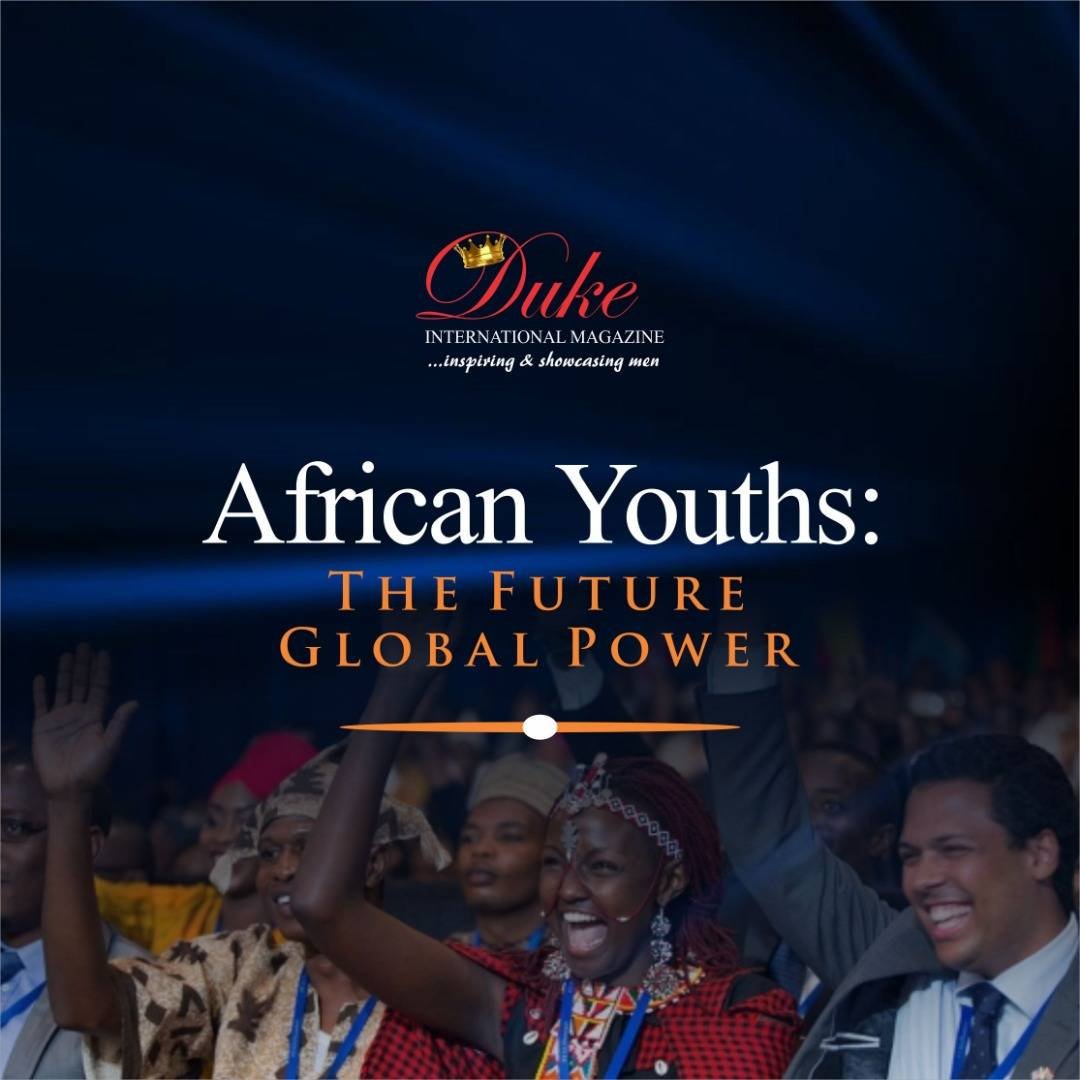The African diaspora is massive and found in every nook and cranny of the world, partly as a result of the forcible enslavement of Africans in the New World and more recent migrations in the post-world war 2.
The largest diasporas in Brazil, with over 100 million, the US with over 40 million, and Haiti with 11 million, are largely a result of the horrific period of enforced labour and enslavement, with other significant numbers from that painful legacy in Central and South America, as well as the Caribbean Islands.
Despite the ideologies associated with white supremacy, the Black societies and cultures in America retained strong emotional links to the African continent, with leaders and activists like Marcus Garvey and W.E.B. Du Bois playing significant roles in the evolution of the pan-African and United Africa projects.
Following the global success of the Marvel film The Black Panther, with its Black superheroes, based in the Utopia-like country of Wakanda, set in Africa, identification with the continent is at an all-time high, with many young diasporans from these populations increasingly looking for opportunities and ways to connect to the continent.
These historic African populations have been joined by the post-world war 2 arrivals. In Europe, this diasporan population is over 15 million, with migration mainly following former colonial relationships (with France leading the numbers with 5 million plus, followed by the UK’s 3 million plus).
These numbers continue to grow as new waves of migrants leave the continent to seek better education and work opportunities, including professional skills upgrading – along with those who leave as refugees or asylum seekers.
This has also led to a ‘brain drain’ that has had some negative consequences for the Africa continent. The phenomenon of outward migration looks set to continue, given the increasing humanitarian emergencies due to conflict and climate change, and the continent’s demographic explosion, with 44% of the global population projected to be African by the end of the century.
Scaling Fences, a 2019 UNDP report, vividly captures in detail and provides a breakdown of the factors motivating many of those seeking to migrate out of the continent, even via irregular channels.
The report canvas of 3,069 adult African migrants from 43 African countries, based in 13 European countries, is the largest survey of irregular migrants yet. Their voices reinforce the overwhelming quest for: “good health, decent jobs, governance/security, liberty and the freedom to pursue opportunities for our families and ourselves. Because many people don’t feel they have that in Africa, they come to Europe.”
However, economic motivations, closely tied to self-actualization, were fundamental in driving irregular migration from Africa to Europe among respondents.
A total of 81% selected ‘work/send money home’ as either the most important or an additional reason for undertaking the journey. For these individuals who do travel, the perceived opportunity to transform life through emigration to Europe, scaling the fences of constrained aspiration at home, and even the fences erected ever higher against their arrival and that of others in Europe, is the deciding factor – trumping risk and uncertainty.
Also, a ‘push factor’ is a strong current running throughout Africa, stronger in some countries than others. Asked their primary reason for seeking higher education abroad, African students will most often cite the poor quality of the education system at home, followed by a long litany of complaints that stem from a single source: underfunding.
Strikes and disruptions remain a factor – in some countries it is hard to imagine an academic year being completed on time. For instance, a Sierra Leonean newspaper quoted a university administrator who jokingly commented: “During the first term, the students go on strike; second term, it’s the junior staff, and then in the third term, the senior staff take their turn.”
Despite this tumultuous movement and the complicated reasons most have for leaving, many of these recent migrants have remained connected to the continent, supporting a massive remittance economy worth over $75 billion in 2020 (even despite the Covid-19 pandemic). They are also at the forefront of important efforts to reverse the ‘brain drain’ through support for skills sharing, mentoring, volunteering and other ‘brain circulation’ schemes. As well as investment and entrepreneurship initiatives.
Leveraging the millions of the historic and post-world war 2 African diaspora (now also known as the Sixth Region by the African Union) can have a positive transformational impact on the continent.
The AU defines this Sixth Region as: “Consisting of people of African origin living outside the continent, irrespective of their citizenship and nationality and who are willing to contribute to the development of the continent and the building of the African Union.”
The AU is right to focus on the potential transformational impact of mobilizing this diaspora. Remittance inflows to Africa account for half of all private capital flows into the continent and have risen from $38.4 billion on average in 2005–2007, to $64.9 billion in 2014–2016, to $75 billion last year, down from a peak of $85 billion in 2019.
Diaspora remittances are the most tangible and the least controversial link between migration and development.
Many diasporans transfer funds to households in origin countries for the purpose of investment. Data from household surveys reveals that households receiving international remittances from OECD countries have been making productive investments in agricultural equipment, building houses, in business, land purchases, renewable energy and other investments.
Members of diasporas, especially the young, are now acting as catalysts for the development of financial and capital markets in their countries of origin. They are diversifying the investor base (the capital markets of many countries are dominated by investments from government and large companies), by introducing new financial products, and by providing a reliable source of funding.
They are also an important source and facilitator of research and innovation, technology transfer, and skills development.
Despite diasporans’ eagerness to contribute to their countries of origin, significant barriers exist that threaten the realization of these interests.
Individual countries, the AU, and diaspora civil society organizations are creating mechanisms and structures which will enable mobilization of these diasporas for meaningful scalable impact. It is worth examining some initiatives targeted at the young under these three categories of intervention.
First, Ghana’s 2019 Year of Return targeted young people from the historic and post-world war 2 diaspora as part of a successful heritage tourism offer.
Leading African-American personalities like Beyoncé were amongst the 1.5 million people who descended on Ghana over the year, turning Accra into a party town, especially in December 2019.
$1.8 billion in additional spend was added to the economy, hotel rooms (including personal Airbnb facilities) were upgraded, and many diaspora returnees began to explore opportunities for future investment in the Ghanaian economy – one example being the Ayi Mensah Park real estate development, a collaboration between the historic and new diaspora.
The African Union Youth Volunteers Corps (AU-YVC) is a flagship initiative of the AU for promoting participation and empowerment through skills exchange.
Driven by a pan-African vision, it targets young people between 18-33 from the continent and diaspora to support initiatives in sectors such as education, entrepreneurship, health, ICT, governance, peace building and agriculture.
Meanwhile, European-based diaspora civil society organizations such as the African Diaspora Youth Network in Europe, Africa-Europe Diaspora Development Platform (ADEPT), FORIM, Shabaka and the African Foundation for Development (AFFORD) have engaged young diasporans through structured policy forums, entrepreneurship and investment programs, volunteering programs and research.
They also create channels to connect young people on the continent and in the diaspora to share experiences. AFFORD, for example, have been mobilizing sustainable investments, essential to grow small businesses that will generate the jobs that will provide a meaningful stake in society for the high numbers of young unemployed.
Creating enabling environments for the diaspora to engage effectively remains a continuing challenge. According to the International Organization for Migration (IOM), connecting strategically with diasporas and leveraging their various resources for impactful development involves all stakeholders – especially the young, and the interest and commitment of governments at the highest level to move such a cross-cutting agenda forward.



